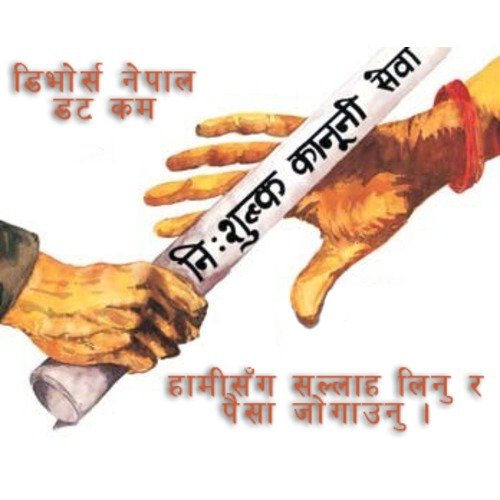Best Child Visitation Lawyers in Nepal
Share your needs with us, get contacted by law firms.
Free. Takes 2 min.
Free Guide to Hiring a Family Lawyer
Or refine your search by selecting a city:
List of the best lawyers in Nepal
About Child Visitation Law in Nepal
Child visitation laws in Nepal are designed to ensure the welfare and best interests of the child involved in custody and visitation cases. The laws strive to facilitate meaningful and reasonable visitation arrangements between the non-custodial parent and the child, balancing the child's well-being and the rights of both parents. Visitation matters are typically addressed during custody disputes, and the courts aim to create arrangements that promote the child’s right to have contact with both parents, unless such interaction is considered detrimental to the child’s welfare.
Why You May Need a Lawyer
Engaging a lawyer in child visitation matters in Nepal may be necessary for a variety of reasons. Common situations include:
- Disputes over custody and visitation rights between parents.
- Need for legal representation in court proceedings related to visitation.
- Difficulties in enforcing existing visitation arrangements or orders.
- Modifications of visitation schedules due to changes in circumstances.
- Concerns about the child’s safety or well-being during visitations.
- Navigating the complexities of cross-border visitation issues.
Legal advice can help clarify rights, obligations, and potential solutions within the framework of Nepalese family law.
Local Laws Overview
The key aspects of Nepal’s laws relevant to child visitation primarily revolve around ensuring the best interests of the child. Here are some notable points:
- The Muluki Ain (General Code) addresses child custody and visitation matters.
- The legal framework emphasizes the child's welfare as the paramount consideration in custody and visitation decisions.
- Court orders regarding visitation aim to maintain a child's relationship with both parents, unless contact would harm the child.
- Visitation rights can be modified by the court if circumstances change significantly.
- Both parents are encouraged to reach amicable visitation arrangements and attend mediation before resorting to litigation.
The nuanced interpretation and applications of these laws may vary case by case, underscoring the importance of legal consultation.
Frequently Asked Questions
What determines child visitation rights in Nepal?
Visitation rights are determined based on the child’s best interests, including emotional well-being, safety, and the existing parent-child relationship.
Can grandparents request visitation rights in Nepal?
While not specifically legislated, grandparents may seek visitation if they demonstrate an important bond and that it's in the child's best interest.
How can visitation arrangements be enforced?
If visitation orders are ignored, the aggrieved party can file a petition in the court for enforcement and seek legal remedies.
How does domestic violence affect visitation rights?
Allegations of domestic violence can limit visitation rights or require supervised visitations to ensure the child's safety.
What are the typical visitation arrangements?
Arrangements vary but often include regular weekends, holidays, and vacation periods; they are tailored to suit the child's best interests.
Can visitation rights be denied?
Yes, if visitation poses a danger to the child or if it is deemed not in the child's best interest, courts can deny visitation rights.
What if the custodial parent relocates?
Relocation can warrant a modification of the visitation order. Both parents may need to adjust the visitation schedule through legal processes.
Is mediation required for resolving visitation disputes?
Mediation is encouraged as it allows parents to reach mutually beneficial agreements without the adversarial nature of court proceedings.
How can I modify a visitation order?
A visitation order can be modified by filing a petition with the court demonstrating that a change in circumstances justifies the modification.
Can visitation be agreed upon without a court order?
Yes, parents can mutually agree upon visitation terms outside of court, but having a court order provides legal backing in case of disputes.
Additional Resources
For individuals seeking more information or assistance on child visitation in Nepal, the following resources can be helpful:
- Mediation Centers: They provide support in amicably resolving family disputes.
- Central Child Welfare Board (CCWB): Oversee child welfare policies and regulations in Nepal.
- Legal Aid Centers: Offer free or low-cost legal services for those unable to afford them.
- The Nepal Bar Association: Can provide referrals to family law attorneys specializing in child visitation matters.
Next Steps
If you require legal assistance related to child visitation in Nepal, consider taking the following steps:
- Consult with a family law attorney to discuss your situation and options.
- Gather relevant documents such as existing court orders, communication records, and any evidence supporting your case.
- Consider whether mediation or negotiation might provide a satisfactory resolution to your issue.
- If necessary, prepare to file a petition with the court to resolve visitation disputes or modify existing orders.
- Stay informed about your rights and obligations under Nepalese law concerning child visitation.
Lawzana helps you find the best lawyers and law firms in Nepal through a curated and pre-screened list of qualified legal professionals. Our platform offers rankings and detailed profiles of attorneys and law firms, allowing you to compare based on practice areas, including Child Visitation, experience, and client feedback.
Each profile includes a description of the firm's areas of practice, client reviews, team members and partners, year of establishment, spoken languages, office locations, contact information, social media presence, and any published articles or resources. Most firms on our platform speak English and are experienced in both local and international legal matters.
Get a quote from top-rated law firms in Nepal — quickly, securely, and without unnecessary hassle.
Disclaimer:
The information provided on this page is for general informational purposes only and does not constitute legal advice. While we strive to ensure the accuracy and relevance of the content, legal information may change over time, and interpretations of the law can vary. You should always consult with a qualified legal professional for advice specific to your situation.
We disclaim all liability for actions taken or not taken based on the content of this page. If you believe any information is incorrect or outdated, please contact us, and we will review and update it where appropriate.
Browse child visitation law firms by city in Nepal
Refine your search by selecting a city.

















